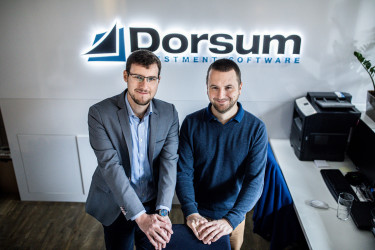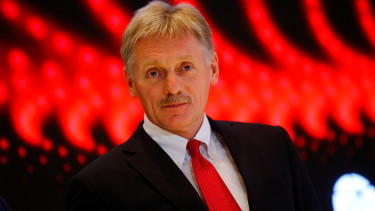Hungarian fintech success story conquers new area

The main trends and directions of development in wealthtech
Asset management, premium and private banking track the boom in digitalisation and customer experience in the field of daily banking and paytech with a few years' delay, said Fischer.
Private banking customer experience remains in the digital prehistoric age, while the average age is no longer 70 years at every private banking event.
Preparing for this change is the largest challenge for the classic incumbents today, he added. Fischer also noted that the B2C fintech revolution has not yet started on the investment market, but it is only a matter of time and we should expect overwhelming changes here.
While a few years ago, dedicated asset management support systems belonged in the "nice to have" category in Central and Eastern Europe, they now mostly belong in the "must have" group, added Rokob.
Bigtech threat on traditional asset management players
Fischer pointed out that bigtechs are highly specialised and they make rapid and most efficient entries mostly on niche markets, e.g. Apple Pay or Amazon's credit card. "Investing and asset management are less relevant areas here, most likely because of their personalised characteristic and complexity," he said. You can definitely make money on this market and large bigtech companies will certainly become more active here.
Over the next five years, bigtechs will cause a lot of headache for incumbents, but when it comes to CEE the savings and wealth management fronts are unlikely to be the most problematic.

Fischer said ESG investing is slowly becoming mainstream in Western Europe and the United States, and it is becoming a standard for listed companies to publish key information for ESG scoring in their quarterly earnings reports. In parallel with this, ETFs of this type are becoming increasingly popular west of Hungary, but in this region we are less susceptible to such issues, he added. There is a massive generation gap in this respect, as well. Members of the Y or Z generations are more inclined to invest in "green" companies, but if you ask older customers if they want to put their money in an eco-friendly company they just shake their heads, not comprehending what this new "hype" of the young generations is, added Fischer.
He also thinks that the ESG trend will drive prices higher. Firstly, ESG-rated papers will be going up, it's a self-fulfilling prophecy, and they'll become more and more popular. Secondly, as younger generations become wealthier, the papers will be given another boost.
Within two to three years, it will not be a question even in Hungary that fund management companies and distributors will have to actively deal with this issue.
ESG and similarly-themed investments will gain popularity, says Rokob, because this is easier to understand than the traditional asset class, yield and risk dimension. If customers are offered a choice of products and they can buy one by which they actively do something for the environment, this is easy to understand and to identify with, he Rokob.
Private banking assets soar
Assets in private banking grew by HUF 1 trillion over the last six months, which was the larget growth on record since 2007, yet the number of private bankers did not grow. When asked where these assets come from and whether they include fresh funds, Rokob replied that some of the growth stemmed from higher yields, but investment service providers also received fresh funds.
He is convinced that services in this segment will remain personal and Dorsum provides the tools that help prepare for the one-on-one counselling sessions as well as for after contracting. Challenges are even greater for consultants in the premium segment who manage 300 to 500 customers to receive appropriate IT support to provide high-quality services.
Fischer noted that banks cannot afford to have well-paid private banking consultants spending several hours a day digging up data from Excel sheets preparing for their session. There's a huge pressure on banks to improve efficiency on this front, as well, and large players are making progress in this respect.

The impact of MÁP Plus on the wealth management market
Hungary's new retail government security, MÁP Plus that was introduced last July, offers a practically risk-free yield of around 5% and so it is an instrument that has short-term and long-term impacts on the wealth management market, as well.
Rokob said there is no other product that stands out so sharply from the yield/risk curve. The MÁP+ offers extra yield at practically zero risk. As a result, at Dorsum they experienced smaller demand by customers to achieve a real return above the rate of inflation by building a portfolio, regularly adjusting its weights and integrating professional knowledge into it. There is definitely a crowding out impact, both in the premium and retail segments, but private banking clients still do not invest all their wealth in MÁP+, he added.
Fischer noted that MÁP+ finds its way to people that had never looked further than bank deposits and cash when it came to investments. "Now these people open government security accounts and fill out MIFID tests for the first time in their life, and they have actual investments, even if these are lopsided."
He thinks that once this pressure by MÁP+ fades and other real alternatives come to the forefront, a wider group of investment products will become apparent in the mass retail segment, as well and that will improve the savings culture in Hungary.
Rokob reminded that Dorsum has been developing end-to-end the State Treasury's government security distribution system for nearly 20 years. "Even as we speak, we are working on several exciting solutions together with the Treasury, and these will be available for a wide group of customers shortly."

Finovate coming up
Dorsum will be at Finovate this year, as well, and Fischer said they have a new product development they call - among themselves for now - Wealth Management Communication Hub. He stressed the importance of personal support and assistance. Dorsum believes that irrespective of generational changes, private and premium bankers will be required even during the next 10-15 years to personally help customers make their savings decisions.
On the other hand, I don't think Y and Z generation customers will be willing to visit branches and take a number there. That is why we need to create digital channels where the personal nature remains intact but it is moved into the digital space.
Dorsum has developed a product now that aims to make this possible.
Rokob stressed their in-house work takes into consideration that Finovate is a well-defined milestone in their product development projects.
When asked about PSD2 in wealth management, Fischer replied that it is only about current accounts for now, but it does open a few opportunities in respect of government securities, as well, although with a smaller impact.
We believe that on a ten-year horizon we'll have open banking on the government securities market, as well, because regulatory pressure will make sure of that.
This will overhaul today's deposit management and government security world from many aspects, projects Fischer, adding that Dorsum is already preparing for that era that will present exciting challenges for everyone.
Dorsum's growth plans
Rokob said the company's wealth management product family has already made Dorsum a solid supplier in CEE, but it sees a lot of opportunities in Poland, and there are plans to move forward to Western Europe.
Fischer said Dorsum started to take business conduct consultancy projects last year. In some places the company helps establish an online investment service provider that is focused mainly on young customers. In other places the company offers assistance in making a successful digital switch in the private or premium segments or it makes recommendations for the improvement of customer service and back-office processes.
There is great potential in this, and it was a surprise even for us how rapidly you can win new clients in this new area. We now have a specific team dedicated to this and it is constantly expanded.
Cover photo by Ákos Stiller









